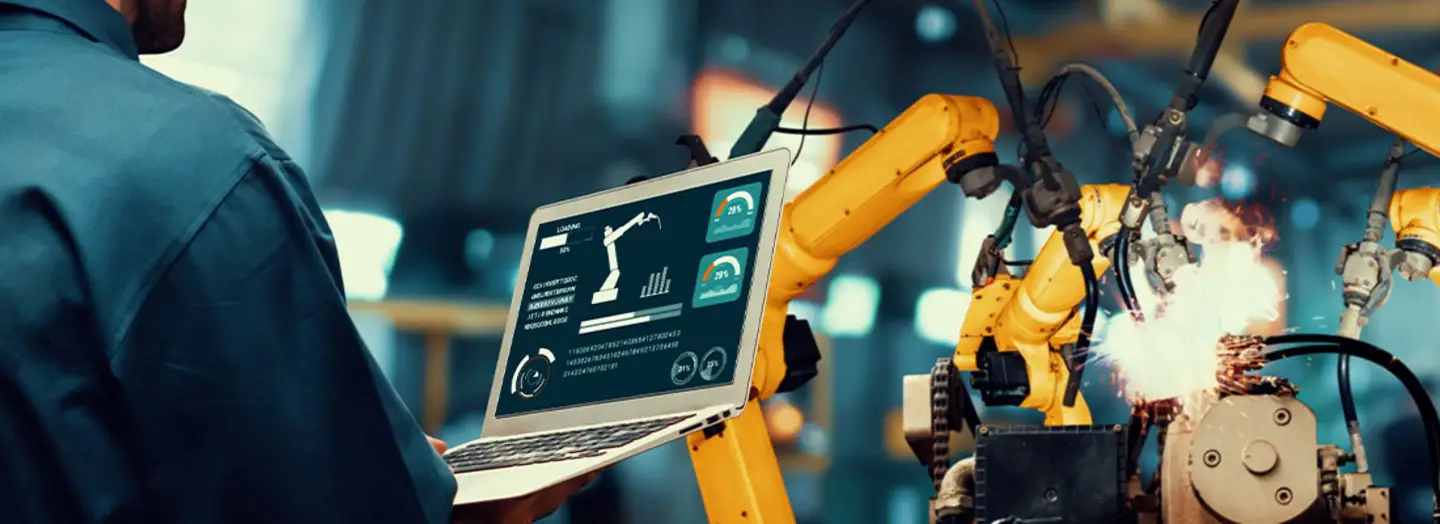

The AI revolution in manufacturing
Business owners have had to grapple with rapidly changing technologies and new trends in the manufacturing industry, from automation to advanced data analytics. And now, artificial intelligence (AI) is poised to take the industry by storm. Manufacturers are increasingly using AI to streamline processes, reduce costs, and improve productivity.
Industry leaders in machinery, aerospace, drug manufacturing, semiconductors, and chips have led the charge in implementing AI in the manufacturing process. However, AI's benefits extend across all manufacturing supply chains — from automation to predictive maintenance. Manufacturers can use AI to retrieve insights from the data generated by their systems and use this information to make better business decisions. The technology can help with everything from tracking and monitoring trends to optimizing workflow and identifying bottlenecks in production.
Expense control and operational efficiency
One of the key areas where AI can have a significant impact is in controlling expenses. By analyzing data from multiple sources, including suppliers, inventory, and even external market data, AI systems can help manufacturers forecast supply chain inventory and production costs more accurately. With these insights, manufacturers can reduce inventory carrying costs and lead times, cut waste, and reduce overall operational costs.
Impact on skills, recruitment, and the workforce
AI has also begun to create a shift in the types of skills that manufacturers look for during the hiring process. Employers will be looking for individuals who are comfortable working with AI, can analyze and interpret data, and are willing to learn how to use AI tools and systems effectively. AI also allows manufacturers to upskill their existing workforce to leverage the power of AI, which can help increase employee retention rates.AI technology can change job requirements and employee recruitment, leading to the potential automation of tasks in traditional manufacturing. This allows workers to focus on more complex roles while machines take over routine tasks.
Embracing the AI revolution
The AI revolution has the potential to make manufacturing processes more efficient, productive, and cost-effective. Small business owners must work alongside their employees to adapt to changing technologies. Human skills will continue to be paramount in manufacturing, and the ability to interact with AI systems will only increase in importance. As more manufacturers embrace AI, success stories of AI implementation will emerge, which should provide valuable insights for small business owners. Manufacturing businesses across all sectors can benefit from AI – controlling expenses, improving supply chains, and inventory forecasting. To stay ahead of the AI revolution, small business owners must prioritize learning about these technologies and remain open to re-skilling and training opportunities for their employees.
A step towards future profitability
Embracing AI technology requires financial investment, and it's a step that can yield significant returns in the manufacturing industry. A bank that understands the nuances of the manufacturing industry can offer tailored financial solutions to meet the unique needs of small business owners. With the right financial support, the adoption of AI tools can drive operational efficiency, reduce costs, and ultimately enhance profitability, making it a worthwhile investment for the future of manufacturing.
References:
Real world manufacturing expertise
Banking products and services are provided by The Pitney Bowes Bank, Inc., Member FDIC. Pitney Bowes, Pitney Bowes Bank, and the Corporate logo are trademarks of Pitney Bowes Inc. or a subsidiary. All other trademarks are the property of their respective owners. ©2023 Pitney Bowes Inc. All rights reserved.